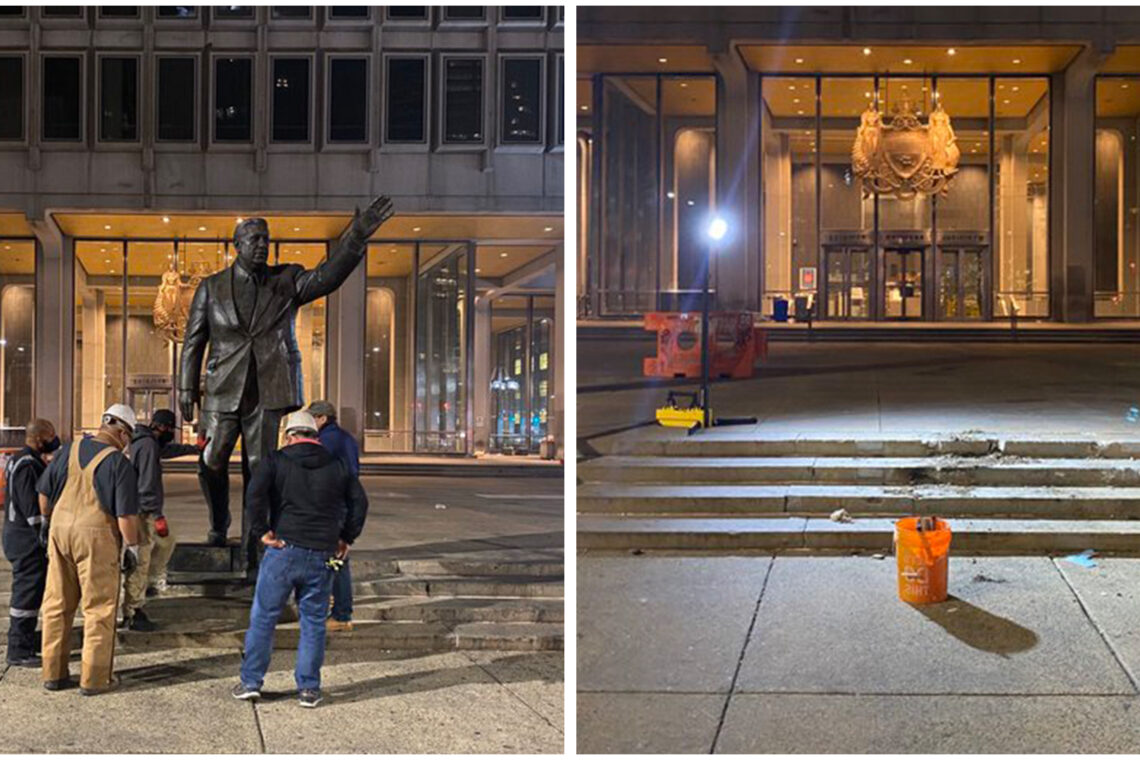
In recent months, a significant shift has occurred regarding the presence of Confederate statues and monuments across various southern cities in the United States. This movement gained momentum following the tragic incident involving the death of George Floyd, which sparked nationwide protests against police brutality and systemic racism. The events have prompted a reevaluation of historical symbols that many argue perpetuate a legacy of hate and oppression.
Cities like Jacksonville, Florida, have taken decisive action in this regard. In downtown Jacksonville, a statue that commemorated Confederate soldiers was dismantled. This decision reflects a growing acknowledgment of the hurtful implications these monuments have for communities, especially those affected by the historical realities of slavery and discrimination. The removal of such statues is not merely an act of erasing history; rather, it is an effort to address the impact that these symbols have on current societal dynamics.
Dallas, Texas, followed suit by removing a bronze statue of a Texas Ranger, E.J. Banks, who has been criticized for his role in opposing the integration of Black students in the mid-20th century. The removal of this statue underscores a broader recognition that many figures historically celebrated have ties to oppressive practices that contradict contemporary values of equality and justice. The city’s action represents a significant step toward reconciling the past with present-day principles.
Similarly, Mobile, Alabama, and Louisville, Kentucky, have also engaged in this reassessment of public monuments. In Louisville, a statue of John B. Castleman was removed after standing for over a century. While Castleman was recognized for his contributions to the city, his legacy as a Confederate soldier who fought to uphold slavery complicates his commemoration. The decision to take down the statue was met with support from various community members who view it as an essential step toward fostering a more inclusive environment.
The removal of controversial monuments is not without its challenges. Many of these structures have been in place for decades, and in some cases, even over a century. For years, individuals and groups have protested their presence, arguing that they serve as enduring reminders of systemic racism. However, legal frameworks in some southern states have historically restricted or outright prohibited the removal of public monuments, making change difficult.
Despite these legal obstacles, recent events have catalyzed a reevaluation of these laws. Government officials in several states have begun to acknowledge that the legacy of racism continues to affect communities today. The desire to eliminate these reminders of a painful past has gained traction, leading to a series of decisions aimed at removing such monuments permanently.
Louisville Mayor Greg Fischer articulated this sentiment, stating, “The events of the past weeks have shown clearly that it’s not enough just to face our history — we’ve got to address its impact on our present.” His remarks emphasize the need for action beyond mere acknowledgment; they call for a proactive stance in dismantling the remnants of a past that continue to resonate negatively in today’s society.
Virginia stands out in this movement, as it has the highest concentration of Confederate monuments in the country. The state’s governor, Ralph Northam, announced plans to remove at least one statue. However, legal challenges have complicated these efforts. A judge issued a 10-day injunction, halting the governor’s plan to take down the statue of General Robert E. Lee, illustrating the legal complexities surrounding these removals.
Northam expressed a commitment to learning from history, stating, “I believe that when we learn more, we can do more. When we take that honest look at our past we must do more than talk about the future. We must take action.” His comments highlight a broader understanding that engaging with history is essential for driving meaningful change.
The discourse surrounding the removal of Confederate monuments has sparked a wider conversation about how societies choose to remember their pasts. Supporters of these removals argue that public spaces should reflect the values of inclusion, equality, and justice. Conversely, some opponents believe that removing these statues amounts to erasing history and the complexities of the past.
This ongoing debate extends beyond individual statues and monuments, touching on broader themes of cultural memory, identity, and the way societies grapple with their legacies. As communities confront their historical narratives, the challenge lies in finding a balance that honors the past while fostering a future rooted in equity and understanding.
In this context, the removal of Confederate statues and monuments can be seen as part of a larger movement towards social justice and healing. Many view these actions as essential steps in addressing systemic racism and acknowledging the painful histories that have shaped present realities. By dismantling symbols that represent oppression, communities aim to create spaces that celebrate diversity and promote inclusivity.
As cities continue to engage in this dialogue and take action, it remains crucial to consider the voices and perspectives of those most affected by these historical narratives. The conversations surrounding these monuments offer an opportunity for communities to reflect on their values and aspirations for the future.
In summary, the movement to remove Confederate statues and monuments marks a pivotal moment in the ongoing struggle for social justice. As cities like Jacksonville, Dallas, Louisville, and others reevaluate the presence of these symbols, they engage in a broader discussion about history, identity, and the path forward. This journey toward reconciliation and understanding underscores the importance of addressing the past while striving for a more equitable future.